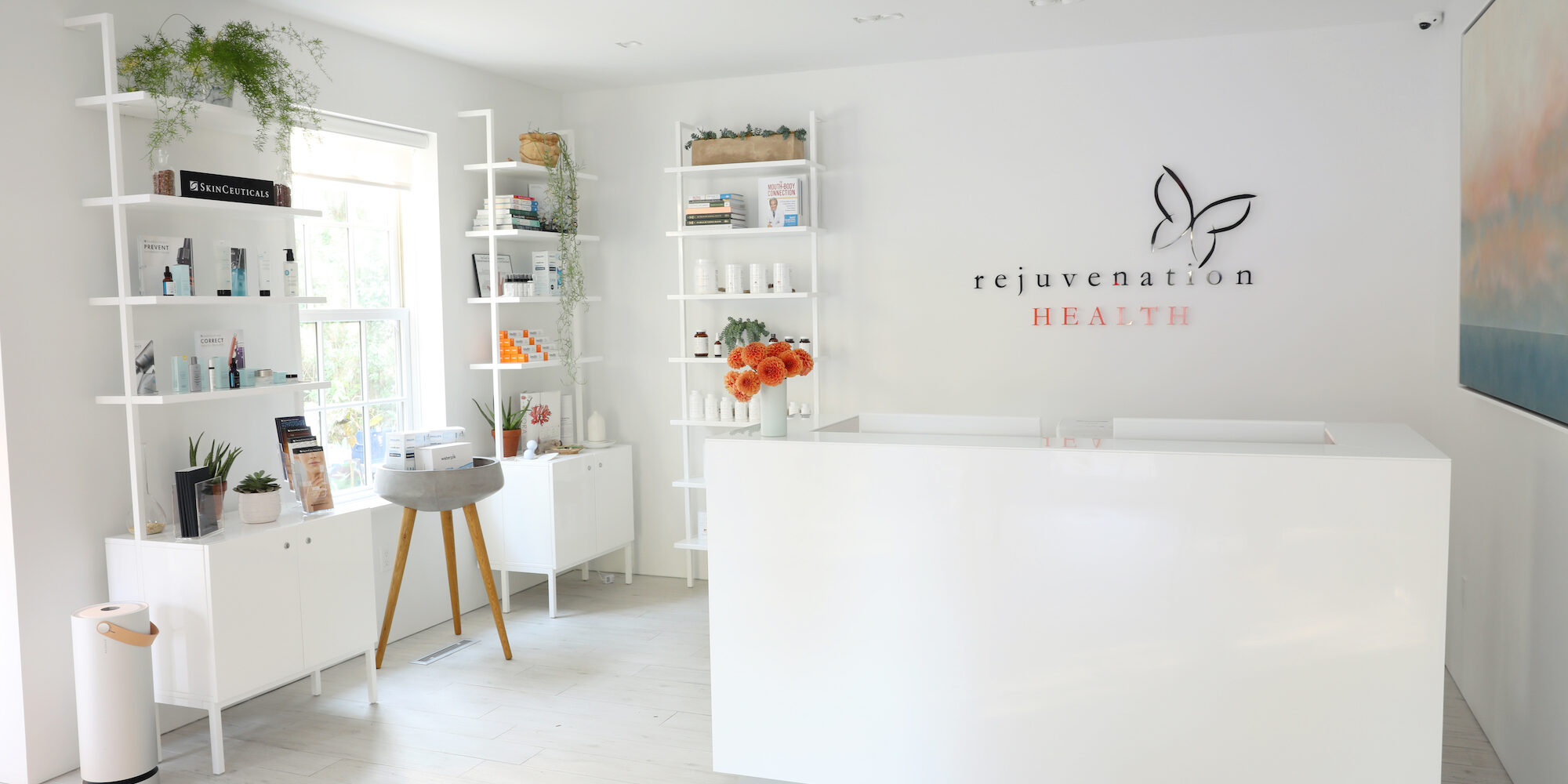
Are Futuristic Treatment Centers The New Spa?
Is the spa day passé?
The experience of donning a plush robe and slippers to shuffle from facial to massage to manicure is being replaced by wellness-boosting protocols that encompass an array of modalities, including cryotherapy and full-body compression, as well as actual medical and dental care. The treatments offered are intended to go deeper than the surface of the skin to address internal issues like inflammation that may cause external symptoms—say, breakouts—that send someone scurrying to a facialist for help with. At the most ambitious service providers, NYDG’s Integral Health & Wellness is an example, clients can indulge in everything from intravenous vitamin infusions to skin-rejuvenating Intense Pulsed Light or IPL.
The future of beauty treatments is a biohacked stack of services that makes the most of ancient wisdom and cutting-edge science to deliver real results.
“Beauty is the icing on the cake,” says Gerry Curatola, a dentist, author and founder of New York health and wellness practice Rejuvenation Health. “It’s really strengthening the inside of you that’s just as important as making the outside look good. [People] not only want to look younger, they want to live longer and healthier.” Against the backdrop of the subpar state of the American healthcare system, Curatola isn’t surprised that consumers are heading to destinations that deliver medical services alongside spa treatments. He believes this convergence has enormous potential for care.
“We all need to come together. To quote a phrase, it takes a village to keep us together and healthy,” he says. “And there is technology is available to do it. We have amazing advanced technologies that are not invasive.”
Thanks in no small part to the pandemic, consumer interest in advanced healing modalities is surging. A survey by beauty and fitness booking software Mindbody found 53% of respondents reported they’re more open to trying new services and treatments this year compared to pre-pandemic. The survey also revealed that 12% of consumers have partaken of low-touch services involving cryotherapy, float tanks, salt therapy/caves and infrared saunas even during the pandemic.
“This likely means that wellness-focused businesses will see an influx of consumers in the coming months, [presenting] wellness businesses with an opportunity to try offering new services, ” posits Mindbody marketing specialist Mary Borstelmann.
Curatola created Rejuvenation Health out of a desire to bring dentistry into the fold as beauty and wellness merged. His craft had been in a silo. “When I came out of dental school, I really felt like something was missing, that I was very disconnected from the rest of the world of medicine,” he says. “The 800-pound gorilla in the room in terms of wellness was oral health. You cannot have a healthy body or a healthy mind or a healthy gut or healthy skin without a healthy mouth. So, for me, it was a natural progression to try and bring the wall down between medicine and dentistry that illogically went up.”
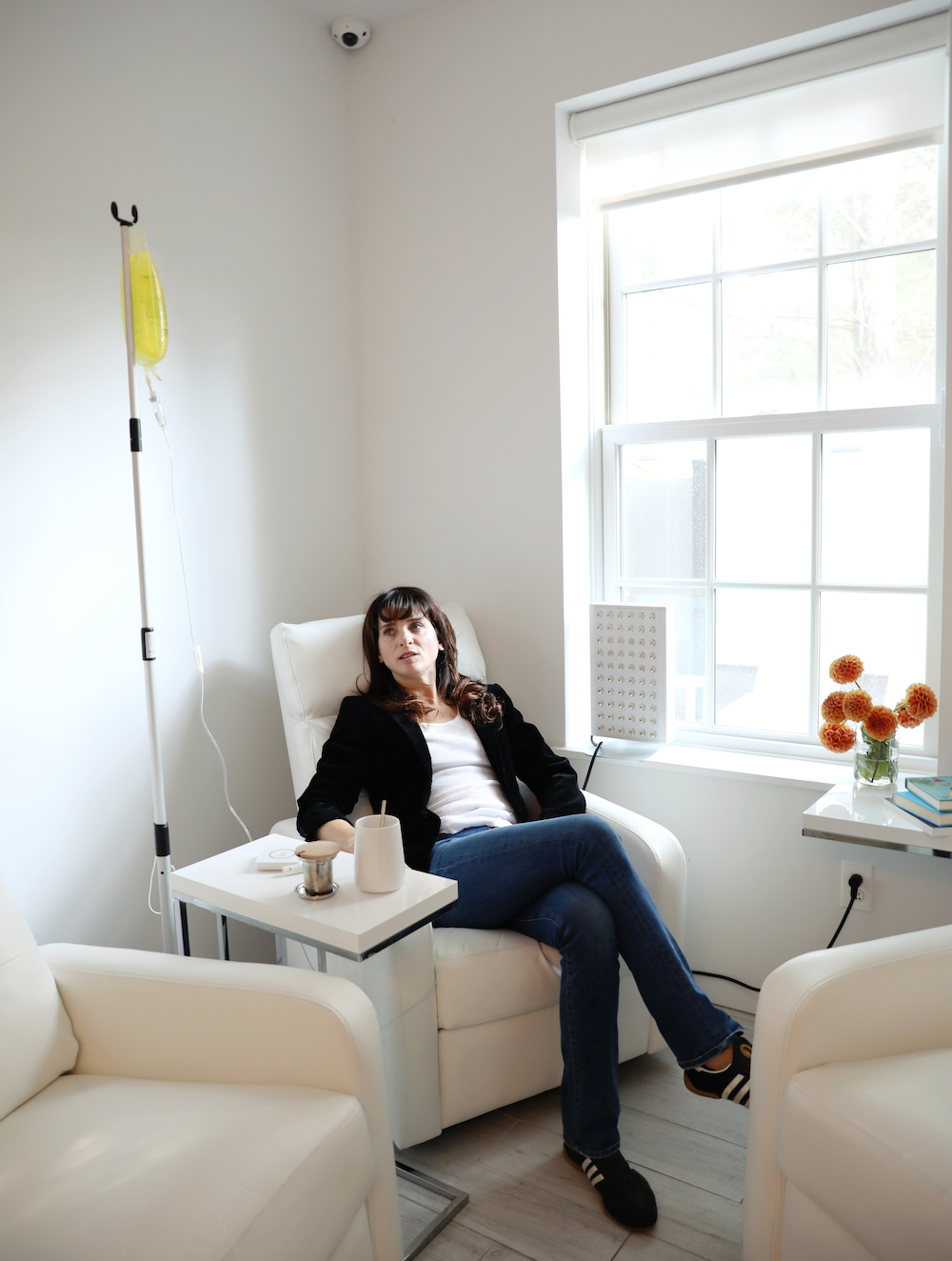
Rejuvenation Health, which opened its location in The Hamptons in 2019 and has a Manhattan flagship slated to open in the next year, is based on the principles of Biologic Medicine, an evidence-based wellness system that recognizes patients’ ability to heal through self-regulation. The concept offers a range of medical and wellness services, including dentistry, body-sculpting treatments, naturopathic medicine, airway health, nutritional counseling, an IV drip lounge and more.
The beauty and wellness world has been buzzing about inflammation (specifically, how to fight it) and lymphatic drainage for several years, and many of the early players in the wellness treatment space centered their services on assisting customers in supercharging detoxification processes. Rejuvenation Health is big on lymphatic drainage. After its clients’ dental work is done, Curatola will give them a 30-minute session on Flowpresso, a futuristic body suit providing a three-in-one sensory treatment comprised of compression, infrared heat and deep-pressure therapy designed to aid lymphatic drainage.
“[Flowpresso] helps to move the lymph, it has infrared in it, which helps you eliminate toxins, and helps patients go from the sympathetic mode of their nervous system, which is often called fight or flight, and you can’t heal when you’re in fight or flight, and bring them into what’s called parasympathetic mode, which is a relaxed state of healing,” he says. “After this machine, patients have less swelling, they feel less pain.”
Opened in 2016, Palm Health is another concept fusing traditional medicine, including cardiology, neurology and mental health, with holistic wellness, modern aesthetics and even spa treatments. Memberships at Palm Health’s St. Louis location run from few hundred dollars per year to exceeding $3,000 a year for complete access to its offerings.
Since its debut in 2018, Clean Market has opened at least one location every year. Its first opened in Midtown Manhattan with infrared saunas, whole body and targeted cryotherapy, and Nutridrip IV treatments. Outposts at downtown Manhattan’s Brookfield Place and Wynn Las Vegas, and a partnership with Equinox Hotels through which Clean Market introduced IV drips aimed at improving sleep and performance, followed. Additional offerings will be available soon at all Clean Market locations and a third Manhattan location is slated for the spring.
“My partners and I have worked in the wellness and fitness space for many years, and we all had a strong desire to bring our favorite services and products under one roof,” says Lily Kunin, co-founder of Clean Market. “It was essential to sift through the noise in the wellness space and create a trusted space for discovery and recovery. That concept resonated with people right away.” She continues, “Consumers are demanding more in terms of efficacy of treatments and the environment in which they receive these treatments. There is space for both in a wellness routine, and the consumer will demand that both continue to evolve to meet changing needs.” Clean Market has monthly memberships priced at $49 and $99.
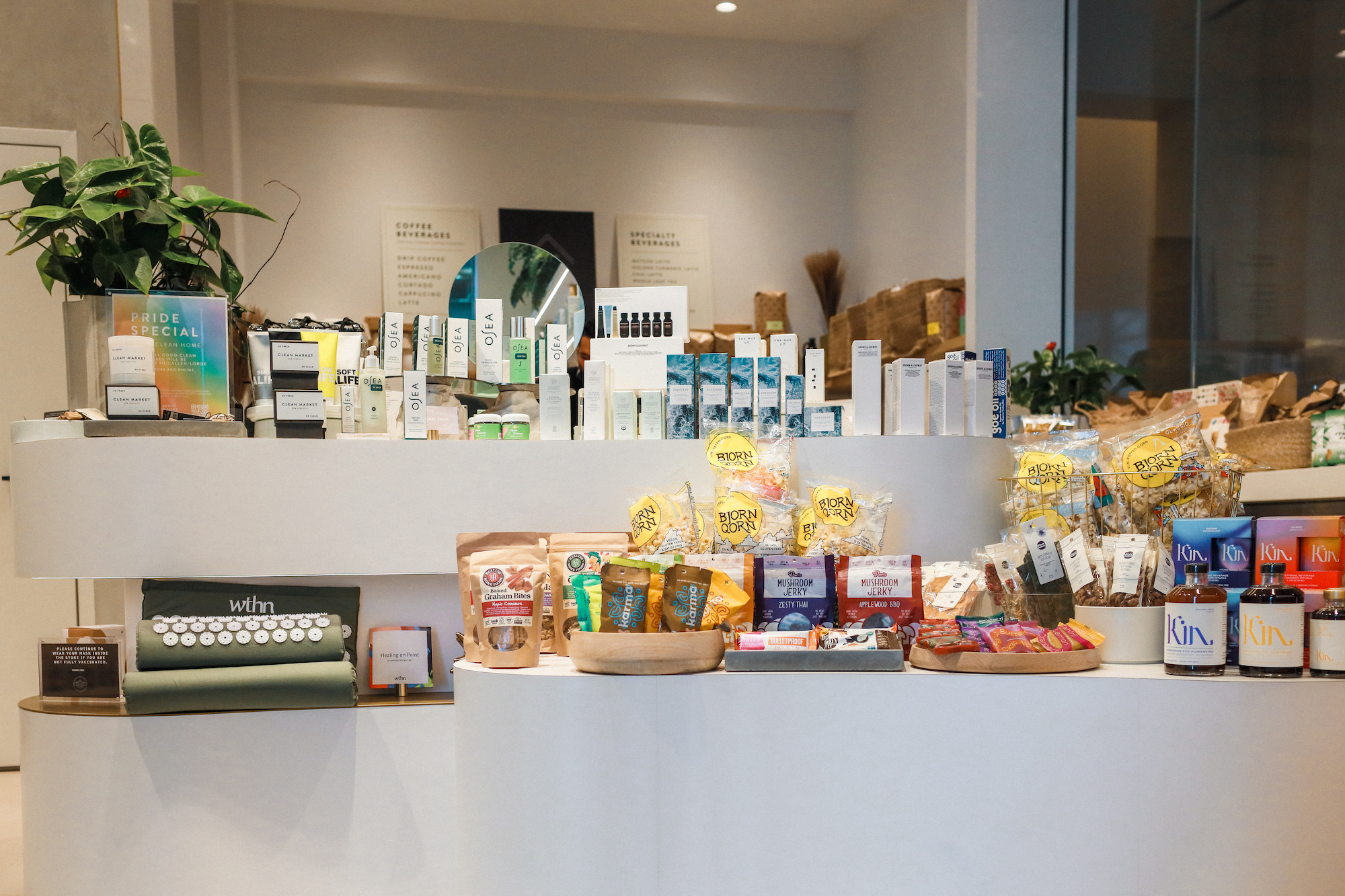
Tricked-out treatment destinations like Clean Market, Palm Health and Rejuvenation Health are proliferating quickly, especially on the coasts. At Remedy Place in Los Angeles, visitors can subject themselves to a six-minute ice bath purported to bestow a litany of health benefits. Vitality NYC in Herald Square specializes in colon hydrotherapy. Fics is a wellness and athletic recovery destination in Manhattan’s Flatiron District. Most wellness treatment destinations had to close temporarily as the coronavirus took root in the United States, and there have been permanent shutterings as a result. Fics competitor ReCover NYC closed after two years in business due to the pandemic-related closures.
Wellness and recovery franchises are rapidly popping up to make up for the losses, allowing turnkey studios to be established in cities beyond New York and LA. Restore Hyper Wellness + Cryotherapy opened in Austin in 2015 as a single location offering cryotherapy and IV infusions to the increasingly tech-bro Austin population. By 2017, it had become a franchise operation that’s registered explosive growth. In 2020, it sold 241 franchise locations. Restore ended 2020 with 74 locations and will approach 150 locations open by the end of 2021. It currently has over 1,500 employees across its Austin headquarters and locations in 28 states. In June 2020, Restore secured $8 million in a series B round led by Level 5 Capital Partners.
Chill Cryotherapy is another wellness center concept that evolved into a franchise opportunity thanks to consumer demand. After opening its first location in Westfield, NJ in 2015, it launched its franchise initiative in 2017. Today, there are five east coast locations, four in New Jersey and one in Cincinnati, Ohio. The locations, which offer a number of total body treatments like cryo-facials, infrared saunas, sound wave therapy, LED light therapy and more, require an investment of approximately $200,000 to open.
In a speech at the annual Biohacking Conference earlier this month, Bulletproof founder Dave Asprey revealed franchise plans for Upgrade Labs, biohacking centers that offer pulsed electromagnetic field (PEMF) therapy, virtual float tanks, atmospheric cell-charger pods, ozone saunas and AI-adaptive exercise bikes. Monthly memberships to the studios cost about $500. Non-members can pay a fee per service.
Today, there are Upgrade Labs locations in Santa Monica, Beverly Hills and Victoria, British Columbia. Upgrade Labs will premiere a franchise location in Philadelphia area early next year, Asprey projects it will reach over 100 franchise locations by the end of 2022, including international doors. “It’s not fair that only billionaires, celebrities and professional athletes can use technologies to become superhuman. Upgrade Labs is here to bring these possibilities to everyone,” says Asprey in a statement. The founder helms the company as CEO and is no longer working with Bulletproof.
There’s no beauty retail environment more staid that the department store floor, but in a bid to remain relevant, forward-thinking (and flush) retailers have figured out ways to integrate wellness treatments into their retail locations.
In 2017, British department store Harrods opened a 10,500-square-foot Wellness Clinic offering aesthetic and health treatments, including DNA-based skincare treatments, injectables, personal training and nutritional counseling. The retailer tapped luxury skincare company 111Skin for the Wellness Clinic’s cryotherapy chamber and IV vitamin drip. Harrods’ home and beauty director Annalise Fard told the publication Women’s Wear Daily that 111Skin “created a vitamin drip just for Harrods, which has about 20 different ingredients, probably three times as much as most drips you see in the market. It’s an all-in-one treatment, the ultimate vitamin drink you could have.”
Over the past 13 years, 111Skin co-founders and husband-and-wife duo Yannis and Eva Alexandrides have cultivated a thriving business primarily in the traditional beauty and aesthetics arena. The brand began with a single product developed for the clients of Yannis Alexandrides’ swanky plastic surgery clinic in London. Its products have gained a retail presence at Harrods, Saks Fifth Avenue, Neiman Marcus, Violet Grey, Net-a-Porter and Harvey Nichols.
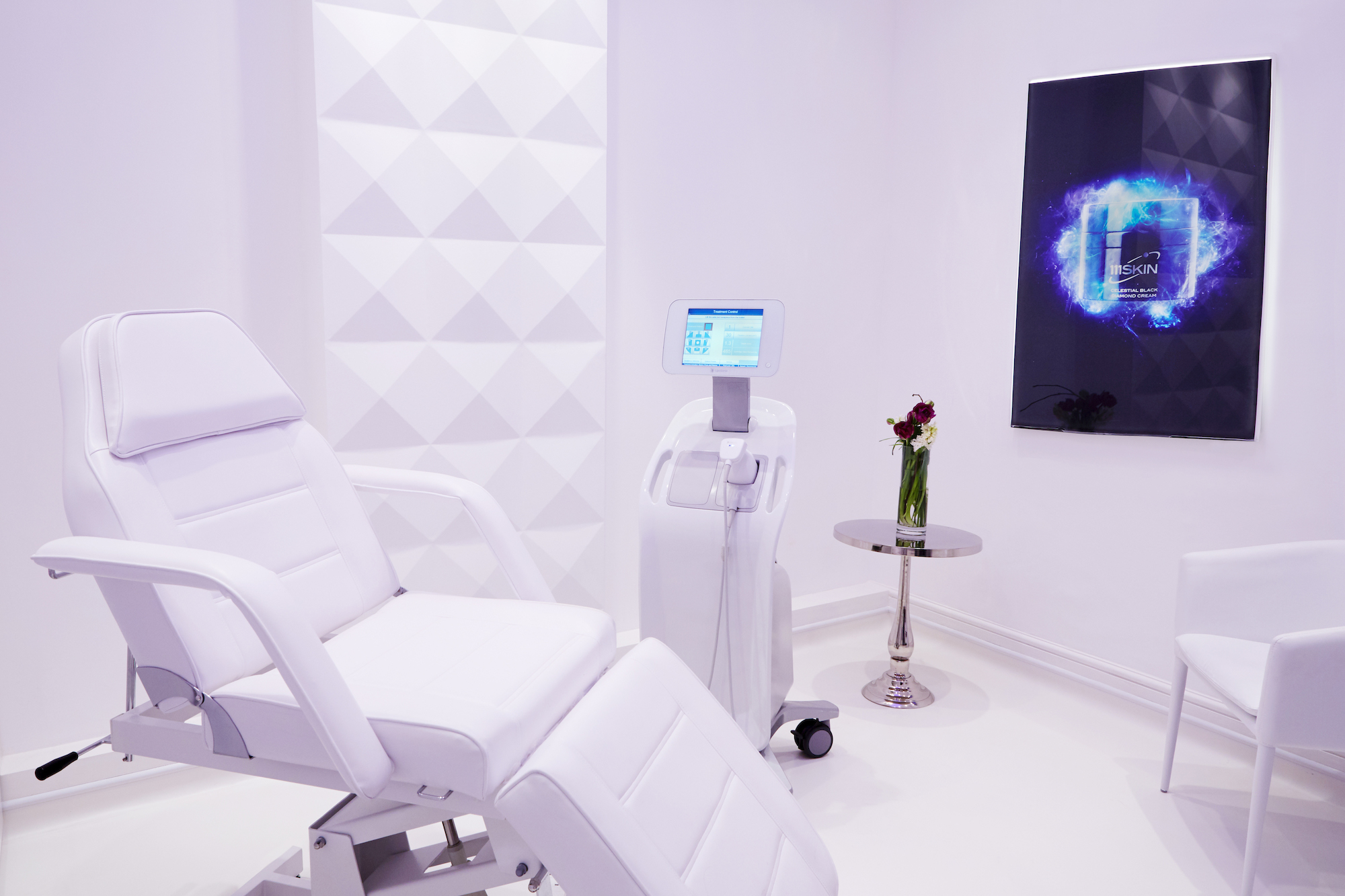
When they discovered cryotherapy technology five years ago, the Alexandrides stretched from skincare to full-body and localized cryo technology at its in-store facial rooms and key global spa partners, including Four Seasons and Bulgari. “We knew from global sports clubs and athletes who were using the treatment regularly that cryo enhances physical performance and stimulates blood circulation to promote faster recovery,” says Eva Alexandrides. “However, after more research, we started to uncover more benefits around using it to reduce inflammation, improve skin quality, boost the metabolism, and release adrenaline and endorphins, which will help you feel rejuvenated, energized and refreshing the body and mind.”
111Skin doesn’t stop at cryo in its clinic. It has thermotherapy and an infrared pod combining LED with infrared meant to support the body’s heavy-metal detoxing and improve collagen production. “The combination of heat and cryo as contrast therapy improves quality of sleep, boosts metabolism, improves elasticity and firmness of the skin, reduces stress, and promotes mental and emotional wellbeing,” says Alexandrides. “The future is scientific rituals incorporating noninvasive technology to deliver visible results.”
As futuristic wellness and health centers have proliferated, so too have stylish medi-spas that cater to a results-hungry clientele, further splintering the beauty treatment landscape.
Nicci Levy, founder and CEO of aesthetic procedure destination Alchemy 43 believes that, as consumers become increasingly savvy about all their self care rituals, they will prefer providers like Alchemy 43 that specialize in specific services over large spas that offer all manner of beauty treatments.
She explains, “Consumers are realizing there is a big benefit in specialization. They can feel more confident that they’re going to get exactly the results that they’re looking for or the experience they’re looking for if they go to a place that specializes. If you want to get a massage, you can chance it at a place that does a hundred other things, or you could go to a place that specializes in massage. This is all they do. They created a full experience around just that service. I think there’s a global move towards people wanting that experience of a trusted brand, a name that you’ve heard of, that has hung their hat on one specific category within the spa experience.”
Levy understands that the prospect of having to go to a different door for each and every beauty treatment is untenable for many consumers, especially those not living in dense urban areas. She believes another element of the beauty treatment landscape of the future will be akin to a beauty service food court, where specialists in specific verticals will be co-tenants, or close to it. She points to Nordstrom’s Beauty Haven in its New York City flagship, a floor of the department store where consumers can get a Face Gym facial and a Drybar blowout within a few steps of each other as an early prototype of this model. Harrods Wellness Clinic follows this schema as well. Big retailers hope these specialized services will draw new shoppers into their stores.
“Co-tenancy is to become more and more of a real thing,” she predicts. “People are going to continue to want to prioritize and value experience and specialization more than they ever have before. I think the way that’s going to look is going to evolve because, yeah, you don’t want to go to 20 different places for 20 different things. There is a world in which all of those things exist in one area and you’re able to knock out multiple treatments.”
KEY TAKEAWAYS
As the wellness boom continues, spas are evolving into destinations where consumers can get an array of futuristic treatments.
The treatments being offered today are intended to go deeper than the surface of the skin to address internal issues like inflammation that may cause external symptoms—say breakouts—that send someone scurrying to a facialist for help with.
These treatments are results-driven and provide holistic wellness as well as aesthetic benefits.
Franchise businesses offering various wellness and holistic health services have boomed during COVID.



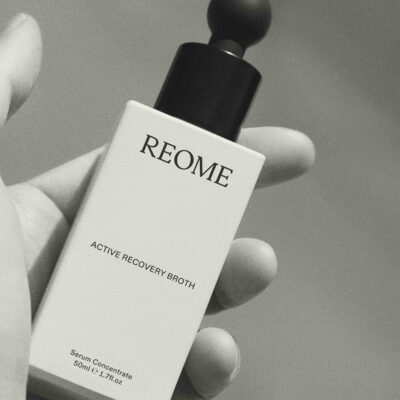
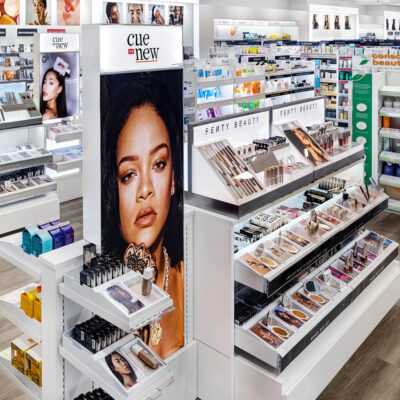
Leave a Reply
You must be logged in to post a comment.